This section is reserved for presentations of WEMov’s early career investigators (ECIs). For this first newsletter, we chose to feature our two colleagues in charge of drafting the newsletter.
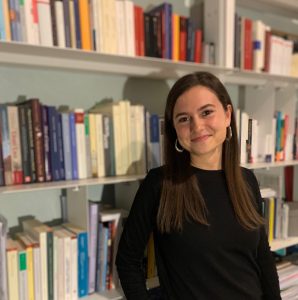 Teresa Bernardi holds a PhD in Early Modern History. She first studied at Ca’ Foscari University of Venice as a graduate student and then she attended the Scuola Normale Superiore of Pisa as a PhD candidate. During her PhD (2015-2020) she also spent time abroad as a visiting student at the École Normale Supérieure in Paris and at the University of Cambridge, where she participated in the study and research activities of CAMPOP (The Cambridge Group for the History of Population and Social Structure). Her research interests span various fields of social, cultural and legal history. Her current research concerns practices of registration and identification of foreigners in Early Modern Venice, with a particular focus on women’s mobility and gender relations. She is now a member of an international programme funded by the French National Research Agency (ANR) and supervised by Prof. Jean-François Chauvard (Université Paris 1 Panthéon-Sorbonne). The research group’s overall objective is to explore the relation between marriage and human mobility both from a qualitative and a quantitative perspective. Teresa Bernardi has recently been awarded the “Achille and Laura Gorlato Prize” for her PhD thesis by a prestigious Venetian Cultural Institution (Ateneo Veneto).
Teresa Bernardi holds a PhD in Early Modern History. She first studied at Ca’ Foscari University of Venice as a graduate student and then she attended the Scuola Normale Superiore of Pisa as a PhD candidate. During her PhD (2015-2020) she also spent time abroad as a visiting student at the École Normale Supérieure in Paris and at the University of Cambridge, where she participated in the study and research activities of CAMPOP (The Cambridge Group for the History of Population and Social Structure). Her research interests span various fields of social, cultural and legal history. Her current research concerns practices of registration and identification of foreigners in Early Modern Venice, with a particular focus on women’s mobility and gender relations. She is now a member of an international programme funded by the French National Research Agency (ANR) and supervised by Prof. Jean-François Chauvard (Université Paris 1 Panthéon-Sorbonne). The research group’s overall objective is to explore the relation between marriage and human mobility both from a qualitative and a quantitative perspective. Teresa Bernardi has recently been awarded the “Achille and Laura Gorlato Prize” for her PhD thesis by a prestigious Venetian Cultural Institution (Ateneo Veneto).
She has published her work in such journals as Genesis and Gender & History. She also wrote a book chapter in Beatrice Zucca Micheletto (ed), Gender and Migration in Historical Perspective: Institutions, Economic Resources and Social Networds (16th-century to 20th century), forthcoming.
Teresa Bernardi
Postdoctoral Researcher, University of Padua (Mobility and Humanities Centre)/ANR project “Marriage and Mobility in Venice (late 16th–18th centuries) – Processetti”. Contact: teresa.bernardi[at]unipd.it
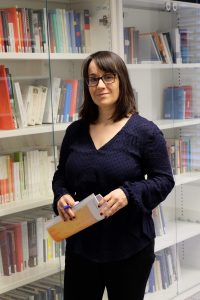 Heidi Rodrigues Martins holds a Ph.D. in Social Sciences from the University of Luxembourg (2019) which was dedicated to understanding the (re)construction of the feelings of (un)belonging across the life course among Portuguese “second-generation” in Luxembourg. Before that, she completed two Master’s degrees: one in Communications, art and culture at the University of Minho, Portugal (2011-2013) and another one in Sociology and anthropology at the Catholic University of Louvain, Belgium (2013-2014). She also spent a year as an Erasmus student at the University of Luxembourg (2012-2013). At that time, she worked on urban spatialities, temporalities and (im)mobilities. Today, she works as a researcher at the Centre de Documentation sur les Migrations Humaines (CDMH), Dudelange, Luxembourg, in which she is responsible for the project “Moving Lusitalia” – a project within the European Capital of Culture 2022/ Esch2022, dedicated to grasp and (re)construct the history of the “Quartier Italie” in Dudelange, namely through a rhythmanalysis; and to design an exhibition retracing that same multivocal and polyphonic history.
Heidi Rodrigues Martins holds a Ph.D. in Social Sciences from the University of Luxembourg (2019) which was dedicated to understanding the (re)construction of the feelings of (un)belonging across the life course among Portuguese “second-generation” in Luxembourg. Before that, she completed two Master’s degrees: one in Communications, art and culture at the University of Minho, Portugal (2011-2013) and another one in Sociology and anthropology at the Catholic University of Louvain, Belgium (2013-2014). She also spent a year as an Erasmus student at the University of Luxembourg (2012-2013). At that time, she worked on urban spatialities, temporalities and (im)mobilities. Today, she works as a researcher at the Centre de Documentation sur les Migrations Humaines (CDMH), Dudelange, Luxembourg, in which she is responsible for the project “Moving Lusitalia” – a project within the European Capital of Culture 2022/ Esch2022, dedicated to grasp and (re)construct the history of the “Quartier Italie” in Dudelange, namely through a rhythmanalysis; and to design an exhibition retracing that same multivocal and polyphonic history.
Her main research interests revolve around (im)mobilities, migration, (un)belongings, identities, urban spatialities and temporalities. Her methodological approach is qualitative, ethnographic and comprehensive and her theoretical framework relies on intersectionality, (trans)nationalism and life course and relational approaches.
She has published in several journals such as Global Networks, In Cidades, Comunidades e Territórios and Vieira, F. Costa et P. Remoaldo (eds.), Cidades, Criatividade(s) e Sustentabilidade(s), among others.
Heidi Rodrigues Martins
Sociologist/researcher, Ph.D., Centre de Documentation sur les Migrations Humaines (CDMH), Dudelange, Luxembourg. Contact : heidi.martins[at]cdmh.lu
À lire aussi

Journée mondiale contre le cancer : une mobilisation collective de la Faculté de Santé
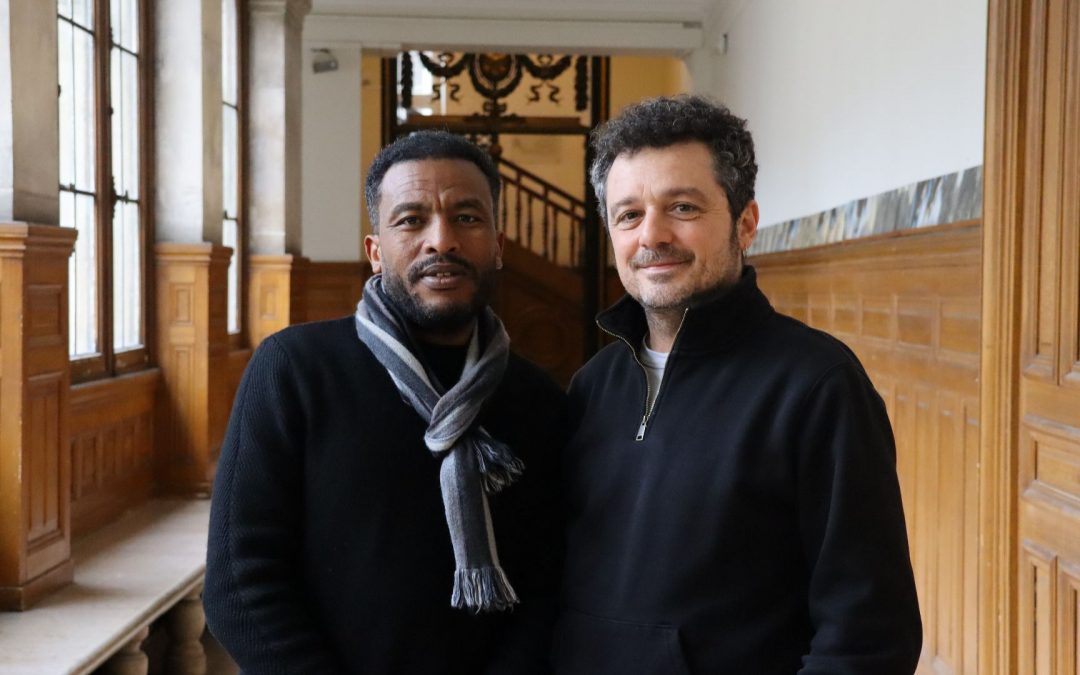
Abraha et Pierre : une amitié au service de la mémoire des peuples en temps de guerre
À Paris, les chemins de deux historiens se croisent. L’un arrive d’Éthiopie, portant avec lui des carnets remplis d’observations quotidiennes rédigées pendant la guerre du Tigré. L’autre, français, est spécialiste de l’histoire contemporaine éthiopienne. De cette...
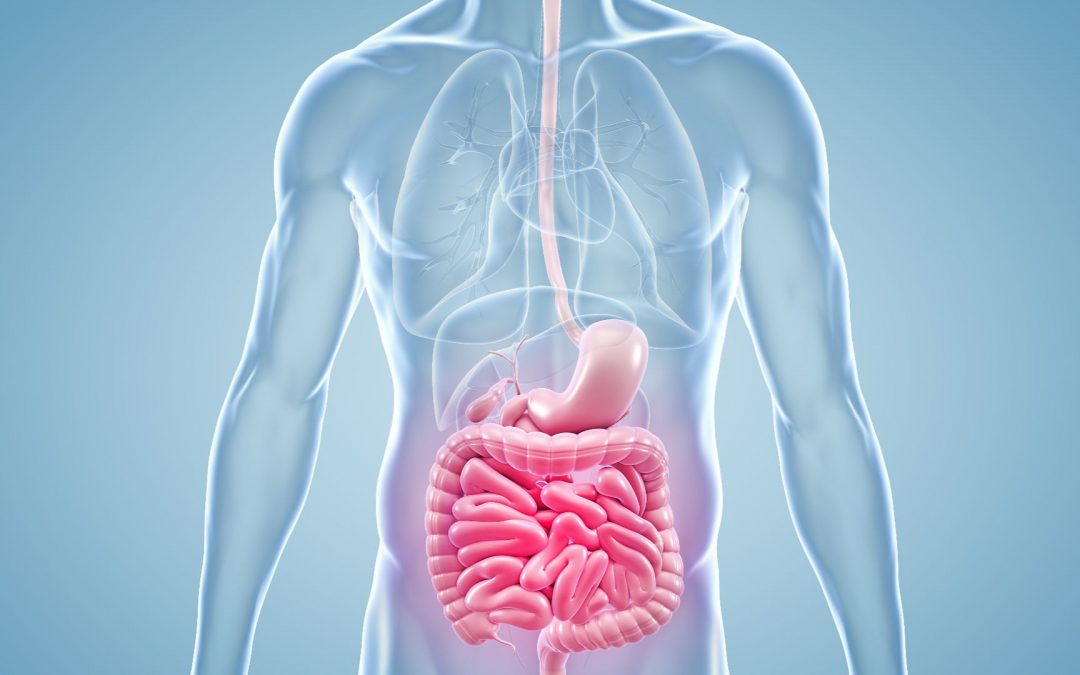
Le rôle clé de la communication intestin-cerveau dans le circuit de la récompense
Menée par Oriane Onimus, doctorante soutenue par la Fondation pour la Recherche Médicale, et dirigée par Giuseppe Gangarossa, professeur à l'Université Paris Cité, une étude publiée le 30 janvier 2026 dans la revue Science Advances révèle que les mécanismes de la...
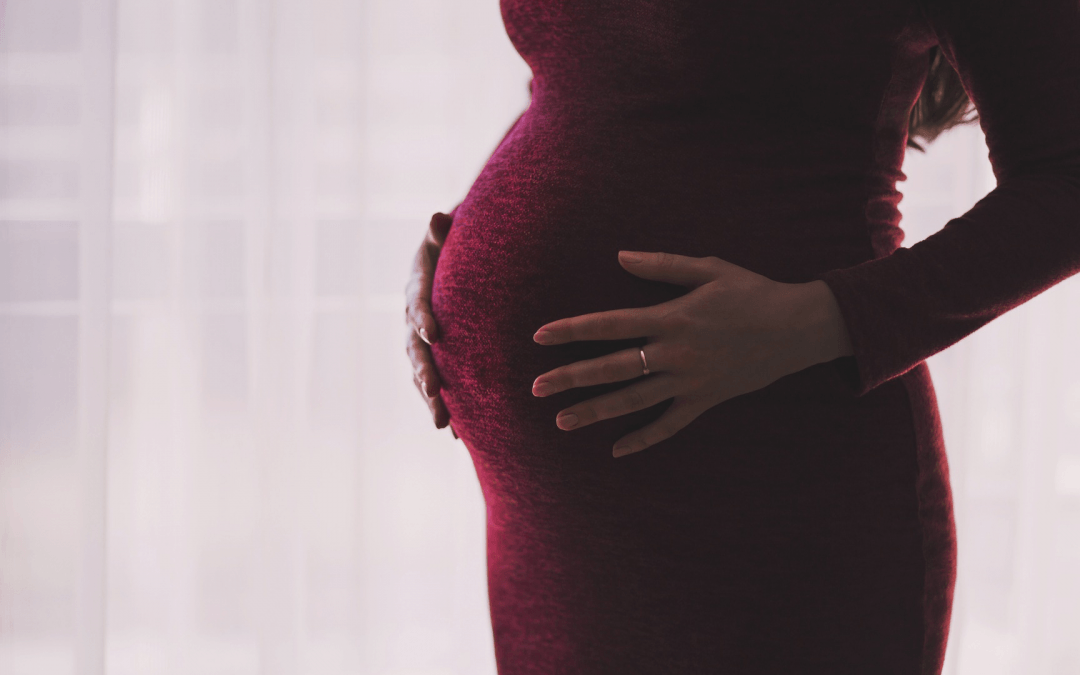
Prédire le risque d’infection chez le nouveau-né grâce au microbiote vaginal
Sous la coordination du Pr Laurent Mandelbrot (Université Paris Cité), chef du service de gynécologie-obstétrique de l’hôpital Louis-Mourier AP-HP, des équipes de l’AP-HP, de l’Université Paris Cité, de l’Université Sorbonne Paris Nord, de l’Inserm, de l’Institut...
